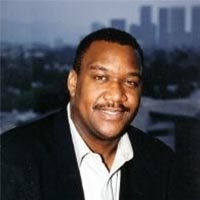 Denver Criminal Lawyers, New York
Denver Criminal Lawyers, New York
Sponsored Lawyers
1-10 of 43 matches
Divorce & Family Law, Criminal
Tracy Donovan Laughlin is a practicing lawyer serving Otsego County in Cherry Valley, Cooperstown, and Oneonta, New York as well as the surrounding counties with offices located in Cherry Valley and Oneonta. Located 40 minutes or less from the county seats of Otsego, Herkimer, Montgomery, Schoharie, Chenango, and Delaware Counties. Practice has been focused on meeting the needs of families since 1995 in areas of Custody & Visitation, Child Support, Divorce, (both contested and uncontested matrimonials), Adult Guardianships, and Trust & Estates. Experienced Senior Attorney with a demonstrated history of working with adult and child family members in the court system including, but not limited to, victims of family violence and sexual assault, as well as families and individuals plagued by mental illness and addiction. Skilled in Appellate Practice and Trial Practice, as well as Mediation and Dispute Resolution. Strong entrepreneurship professional with a MS focused in Criminal Justice and Planned Change from SUNY Albany - School of Criminal Justice. In practice with husband, Dennis B. Laughlin, for past 12 years.
(more)Immigration, Criminal, Divorce & Family Law, Traffic
Stephen Rockmacher has over 25 years experience concentrating but not limited to Immigration, Real Estate, Criminal and Family law cases. He is focused on providing high quality service and providing individual attention to all your legal needs for the highest client satisfaction.
(more)Divorce & Family Law, Family Law, Child Support, Adoption, DUI-DWI
A caring and compassionate attorney: For two decades before I became an attorney I worked for some of the largest corporations and government agencies in the world. That meant I had a significant amount of real world experience and unlike many in our field, developed a kind personality along the way. As a senior communications executive I drove strategic communications and crisis management at IBM, JPMorgan, Siemens Healthcare, and Experian. Additionally, I spent six years in Washington, working as a press secretary for two of the most powerful members of the United States Congress. What changed: After a while, I just got tired of working for the nameless, faceless corporations and had enough of the partisan politics of Washington. I decided I wanted to help real people in crisis and focus efforts as a compassionate attorney. And here I am… The most important element in choosing a lawyer is finding the right connection. Divorces can take time. Trusting your attorney is key. Things move a lot smoother if we work well together. Let me be your compassionate attorney. And what better way to get to know me is learn my likes and dislikes. I am a family guy, who enjoys the simple pleasures. Having everyone around the table for dinner is worth a million bucks. I love music – all kinds of music. It is what I use to relax after a long day (with a glass of Scotch, of course). I love food – all kinds of food. My wife is a great cook. I enjoy volunteering in my community. Even though the practice of law keeps me very busy, I still find time to work on giving back. I am a member of the Cold Spring Lions Club, the Our Lady of Loretto Knights of Columbus, United Way of Dutchess County and the Northern Dutchess NAACP. Boy do I hate bullies. And in my line of work I see plenty. I don’t stand for bullies. They better bring their A-Game if they are going to deal with me. I will not stand for my client to be pushed around by their spouse or an opposing attorney. You will not be “nickel and dimed” either. My rates are fair and I will try and work with you. But don’t go crazy here…respect for my time and profession is still required. Prompt payment is much appreciated.
(more)






